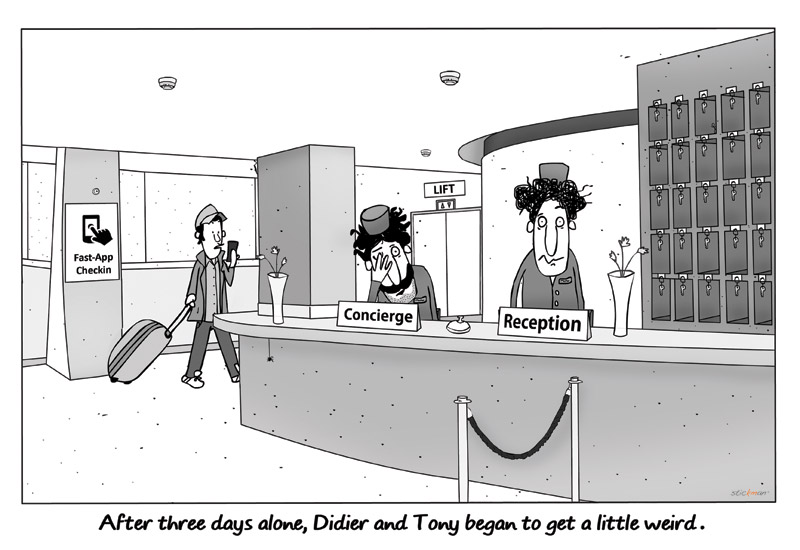I love hotels. I love the very idea of hotels. But let’s be honest, 150 years ago, a shoeshine boy in the lobby would have been de-rigueur, and guests would have doffed their hats at what a neat idea it was.
That all changed, and I have one word for anyone who begs to differ — Airbnb.
A shift in taste, a boom in technology, a reaction to what’s gone before, all this can create a trend, but every now and then it happens on such a vast scale that it requires a tsunami of reinvention and redesign in response; a generational shift that leaves unprepared hoteliers wondering how their profits have vanished quicker than Roadrunner on Redbull.
Now I’m not a journalist or knee-deep in the dark and murky art of marketing; I’m just a designer, but along with my company, Stickman, I’ve been studying hospitality trends, and based on our research we’re lucky enough to be designing some of the first super-hotels tailored specifically to the millennial traveller.
So what do they expect? And how can the industry cater to them?
1. Fortune favours the brave
The hotel industry has always been trend led, with many within it still wondering if they should take millennials seriously. They should, and for one very good reason — money. According to Deloitte, by 2025 millennials will make up the bulk of the workforce, and over the next decade the ground is going to shift definitively in their favour, creating a completely new hospitality landscape.
Someone is going to have to lead this change. Those who do will become the new blue whales, recognisable by both the size of their smiles and their bank balance. Those who don’t can still appeal to the budget-wedding sector, but they’re set to become relics, no longer aspirational, and no longer profitable.
As a nascent generation, however, millennials are only just beginning to stake their claim on the world, meaning that the bulk of revenue opportunities connected to them have yet to emerge. Picture that.

| Advertisement |









 Search our database of more than 2,700 industry companies
Search our database of more than 2,700 industry companies









